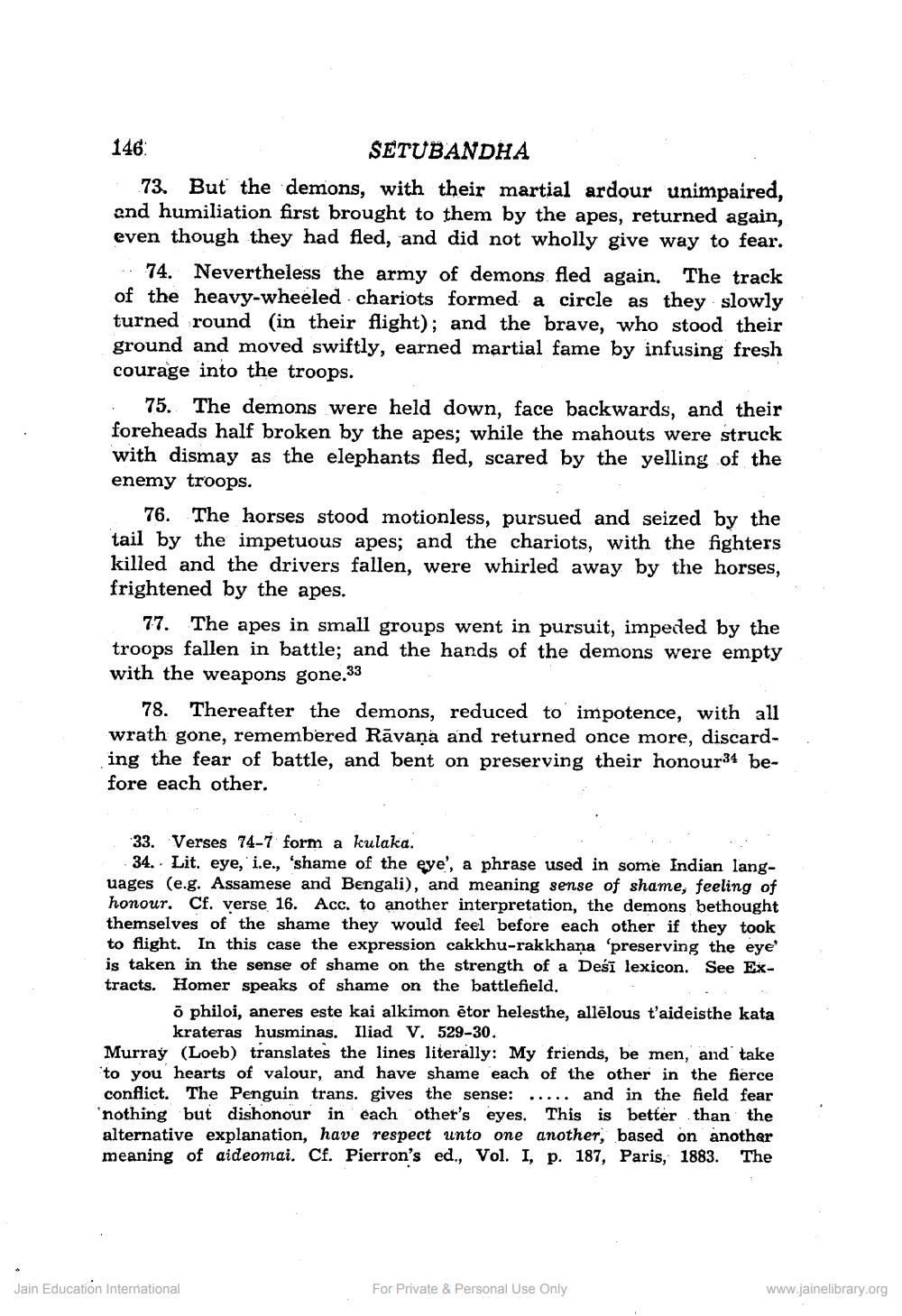________________
146:
SETUBANDHA
73. But the demons, with their martial ardour unimpaired, and humiliation first brought to them by the apes, returned again, even though they had fled, and did not wholly give way to fear.
74. Nevertheless the army of demons fled again. The track of the heavy-wheeled chariots formed a circle as they slowly turned round (in their flight); and the brave, who stood their ground and moved swiftly, earned martial fame by infusing fresh courage into the troops.
75. The demons were held down, face backwards, and their foreheads half broken by the apes; while the mahouts were struck with dismay as the elephants fled, scared by the yelling of the enemy troops.
76. The horses stood motionless, pursued and seized by the tail by the impetuous apes; and the chariots, with the fighters killed and the drivers fallen, were whirled away by the horses, frightened by the apes.
77. The apes in small groups went in pursuit, impeded by the troops fallen in battle; and the hands of the demons were empty with the weapons gone.33
78. Thereafter the demons, reduced to impotence, with all wrath gone, remembered Rāvana and returned once more, discarding the fear of battle, and bent on preserving their honour34 before each other.
33. Verses 74-7 form a kulaka.
34. Lit. eye, i.e., 'shame of the eye', a phrase used in some Indian languages (e.g. Assamese and Bengali), and meaning sense of shame, feeling of honour. Cf. verse 16. Acc. to another interpretation, the demons bethought themselves of the shame they would feel before each other if they took to flight. In this case the expression cakkhu-rakkhana 'preserving the eye' is taken in the sense of shame on the strength of a Desi lexicon. See Extracts. Homer speaks of shame on the battlefield.
ō philoi, aneres este kai alkimon etor helesthe, allelous t'aideisthe kata krateras husminas. Iliad V. 529-30.
Murray (Loeb) translates the lines literally: My friends, be men, and take to you hearts of valour, and have shame each of the other in the fierce conflict. The Penguin trans. gives the sense: and in the field fear 'nothing but dishonour in each other's eyes. This is better than the alternative explanation, have respect unto one another, based on another meaning of aideomai. Cf. Pierron's ed., Vol. I, p. 187, Paris, 1883.
The
Jain Education International
For Private & Personal Use Only
www.jainelibrary.org




